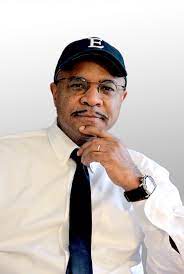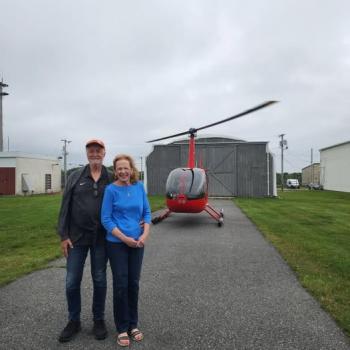Yesterday was the final class in the “Race” unit in my General Ethics class; the reading assignment was George Yancy’s controversial 2015 essay “Dear White America.” If you have never read it, please take a few minutes and do so.
As an ongoing writing assignment, each of my students is required to submit ten short reflections (500-600 words) on an upcoming assigned reading throughout the semester. Here is how this assignment is described in the course syllabus:
These reflection papers are not intended to be book reports on the upcoming reading, nor are they to be mere descriptions of the text. Instead, each reflection should focus on some aspect of the reading that you find thought-provoking, confusing, annoying, controversial, or fascinating—anything that made you think.
Several students submitted reflections on the Yancy essay. One of them came from a young woman who sits in the front row; she is a senior Elementary Education major. She participates in class regularly and has occasionally expressed both in class and in writing that some of the material and conversations this semester have made her “uncomfortable.” Here, unedited, is how she responded to and reflected on George Yancy’s invitation for her, a white woman, to directly face the fact that she is racist and to do it without defensiveness.
George Yancy writes, “If you are white, and you are reading this letter, I ask that you don’t run to seek shelter from your own racism. Don’t hide from your responsibility. Rather, begin, right now, to practice being vulnerable.” (302) Yancy raises the importance of vulnerability, which is a quality I would say that I uphold and I believe is something every human being must possess. I will also raise the importance of another “ability” word: accountability. These two words refer to our ability to take action, and taking action is one of the pillars of being an anti-racist. To commit to being an anti-racist, I will be vulnerable when speaking of my experiences with racism, and hold myself accountable for my participation in racism.
It is extremely uncomfortable for white people to admit that they have been racist but we have all had racist moments, including myself. I groaned in frustration when I had to put my lecture slides into Google Translate for a multi language learner because of how much time it would take. When a black man approached my friend and me in the McDonalds line after we attended a concert in Boston, I refused to make eye contact. At my part-time job at Vineyard Vines, we record customers’ emails to keep in the system. I avoid asking shoppers who are not white because I know it will be difficult for me to spell their emails. I am the most ashamed of that one, and it is difficult to type, but I am fulfilling Yancy’s request to be vulnerable and hold myself accountable.
We, and when I say we I mean white people, cannot act like we are Mother Teresa because this is simply not true. We all have our implicit biases that affect how we see people who are different from us, and we see color. Yancy ends his essay by asking us to hold our children and picture them as black, implying if we would still love them if they were not white. I have mentioned the importance of looking at racism through an intersectional lens in past reflections and discussions. It is not just race that our implicit biases effect – it is gender, sexual orientation, economic status, and everything else that defines us. We say we love our children no matter what, but what happens if one of them comes out as gay? We ask why the homeless person can’t just get a job, failing to take into account the circumstances that led them to their current situation. Our attitudes are even worse when these people are not white.
Our readings have urged us to take action against racism, and the action that Yancy calls for is one that I feel is extremely vital yet neglected. Love. I have made mistakes and I will continue to make mistakes, but it is the true human encounters I have with people who are different from me that make me better than who I was. The little black girl at the elementary school I volunteer at gives me a hug when I come in every Thursday. She wears pink glasses, just like the ones I used to wear when I was her age. I worked as a teaching fellow in a class of underserved seventh graders this summer. I will always remember one of my students who suffered from trauma at home and acted out against me because of it. I will never forget walking with him in the hallway after a particularly difficult day and the nod he gave me when I asked if I could pray for him. On the last day of the program, despite the battles we went through, I reached through the bus window to give him a high five. His fingers would not let go of mine.
There is a famous Coca Cola commercial from 1971 called “I’d Like to Teach the World to Sing”. If it was possible for us to dream of a world where we could all come together in love fifty years ago, what is stopping us now? Yes, we cannot ignore our differences, but at the end of the day we are all human. That last summer day, my student’s hand was darker than my pale one, and our lingering high five looked like a yin-yang symbol. There is something beautiful about sharing moments with people that are different from us. Once these special encounters are had, it makes it easier to display the vulnerability that Yancy believes we need.
The last paragraph of my student’s reflection gave me chills and put tears in my eyes. May we all be similarly committed to vulnerability and accountability as we seek to identify and to address our implicit biases and blind spots.













